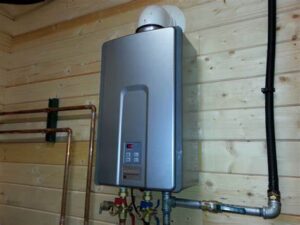5 Tips To Install Water Heater At Your Residential Building In San Diego
Installing a water heater in your residential building is a significant investment that requires careful planning and execution. Whether you’re replacing an old unit or installing a new one, proper installation is crucial for efficiency, safety, and longevity. Here are five essential tips to guide you through the process:
Choose the Right Location
Selecting the appropriate location for your water heater is the first step towards successful installation. Ideally, it should be installed in a well-ventilated area with sufficient space for maintenance and repairs. Ensure the location is easily accessible and complies with local building codes. Avoid placing the water heater in confined spaces or areas prone to moisture, as this can lead to corrosion and other damage over time.
Size Matters
When it comes to water heaters, size matters. Select a unit that can meet the hot water demands of your household efficiently. Consider factors such as the number of occupants, peak usage times, and simultaneous appliance usage. Undersized heaters may struggle to keep up with demand, leading to cold showers and frustration, while oversized units can result in unnecessary energy consumption and higher utility bills. Consult with a professional to determine the appropriate size for your specific needs.
Proper Ventilation and Exhaust
Proper ventilation is crucial for the safe operation of your water heater. Gas-powered units require adequate ventilation to prevent the buildup of harmful gases such as carbon monoxide. Ensure that vents are installed according to manufacturer specifications and local building codes. Regularly inspect vents and exhaust systems for blockages or damage and promptly address any issues to prevent hazardous conditions.
Follow Manufacturer Instructions
Installing a water heater involves intricate steps that vary depending on the type and model of the unit. Always refer to the manufacturer’s instructions and guidelines throughout the installation process. Follow each step carefully, from assembling the unit to connecting plumbing and electrical components. Failure to adhere to manufacturer recommendations may void warranties, compromise safety, and result in costly repairs down the line.
Professional Installation
While DIY projects can be tempting, installing a water heater is not a task to be taken lightly. Hiring a professional plumber or contractor ensures that the installation is done correctly and safely. Experienced professionals have the necessary skills, tools, and knowledge to handle the complexities of water heater installation, including electrical and plumbing work. Additionally, professional installation can provide peace of mind knowing that your investment is protected and will function optimally for years to come.
FAQs
How Long Does It Take To Install A Water Heater?
The time required for installation can vary depending on factors such as the type of water heater, location, and complexity of the installation. On average, a professional installation can take anywhere from two to four hours.
Can I Install A Water Heater Myself?
While DIY installation is possible for some homeowners with the necessary skills and experience, it is generally recommended to hire a professional for water heater installation. Professional installation ensures safety, compliance with building codes, and proper functionality.
What Maintenance Is Required After Installing A Water Heater?
Regular maintenance is essential for prolonging the life and efficiency of your water heater. This includes flushing the tank annually to remove sediment buildup, checking for leaks or corrosion, and inspecting venting systems for proper operation. It’s also advisable to schedule periodic professional inspections to address any potential issues promptly.
Please call Frasers Plumbing at (619) 332-0275 for any and all of your plumbing needs.
Conclusion
Give Fraser Plumbing Inc. a call right away to learn more about how our experts can help with leak detection in San Diego, CA.

